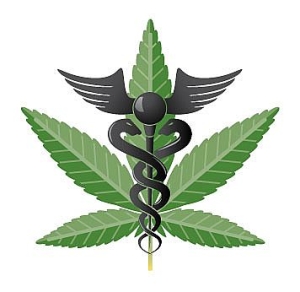How much influence does the media have on your views of medical treatments? This article continues coverage of the myth of amotivational syndrome in relation to medical cannabis, this time from the perspective of bias in the media. As mentioned in previous articles of this series, it is important for future physicians to be aware of the facts and falsities about this treatment option. As medical cannabis gains both medical and public acceptance, blooming and current physicians that fall under its umbrella of use should be prepared to apply this medication when applicable.
A recent study was published in April 2014 titled “Cannabis Use Is Quantitatively Associated with Nucleus Accumbens and Amygdala Abnormalities in Young Adult Recreational Users”. Some journalists have speculated that the findings of this study imply that casual use of cannabis may lead to future issues with regulating drive and motivation. However, there were issues with this study and incorrect conclusions were drawn by journalists in the popular media coverage of the literature. For example, one online publication covering the study was titled, “Casual Marijuana Use May Damage Your Brain”. How might this occur?
First, there was a conflict of interest in the funding of this study, as it was funded in part by the Office of National Drug Control Policy (an organization with a duty to uphold the United States government’s current classification of cannabis as a Schedule I Controlled Substance). Second, and very importantly, brain morphology or connectivity modification (in this case referred to as “abnormalit[y]”) is not always indicative of impairment, dysfunction or damage. The cannabis users in this study also used an average of 11.2 cannabis cigarettes per week and smoked cannabis an average of 3.83 days per week. Few would consider this “casual use.” Additionally, cannabis users who had used other illegal drugs in the past were not excluded from the study (however, those who met abuse criteria for other illegal substances were excluded) and the only method of delivery for cannabis assessed was smoking; these factors add to the list of possible confounding variables. For a more in-depth view of the issues involved with the media coverage of this study, please see this article and this article.
This is not the first time that the media may have missed the mark regarding the possible effects of cannabis use on motivation. In 2013, a study titled “Dopaminergic Function in Cannabis Users and Its Relationship to Cannabis-Induced Psychotic Symptoms” was published. Articles with misleading titles and conclusions, such as “Longtime Marijuana Use Linked with Decreased Motivation, Study Finds”, were then written regarding the literature. However, the purpose of the study had virtually nothing to do with motivation. The medical literature published on the study included no measure of motivation (which is understandable, given that the study was focusing on the question of cannabis and its effect on dopamine levels and psychotic symptoms).
Additionally, the word “motivation” is mentioned only once in the literature (in the Discussion), in the following context:
“One explanation for our findings is that chronic cannabis use is associated with dopaminergic down-regulation. This might underlie amotivation and reduced reward sensitivity in chronic cannabis users… Alternatively, preclinical evidence suggests that low dopamine neurotransmission may predispose an individual to substance use… However, this is inconsistent with findings that recently abstinent and former cannabis users show neither altered dopamine receptor availability… nor altered dopamine release…, suggesting that altered dopaminergic function during chronic cannabis use is normalized by abstinence…”
The researchers also found that more of the cannabis users than the control participants also smoked cigarettes, which may have influenced dopamine levels in the brain. As a side note and to elucidate the true findings of the study, while reduced dopamine was found in the striatum of regular (at least weekly) cannabis users using their own cannabis (i.e. dosage was not monitored or standardized), the researchers “… found no relationship between dopaminergic function and cannabis-induced psychotic-like symptoms.”
Media reports of medical literature on the topic of medical cannabis often sensationalize information in order to draw in more readers. Due to the fact that citizens lead busy lives, they depend on condensed stories provided by their favorite news sources in order to understand what is happening in the world, including the world of healthcare. The combination of these factors works poorly when attempts to ensure a rational consideration of the medicinal value of cannabis and relevant issues are made. Most journalists want to spread correct information for the benefit of the public — however, some have other intentions. It is important for medical professionals to understand the data which is currently available on medical cannabis, so that they will be prepared to offer it to patients for whom it could be beneficial when the time comes. To ensure a scientific foundation of knowledge on the topic of medical cannabis, rely on analysis of primary sources, and not on popular media coverage.
For more information on the topic of medical cannabis, please see Part 1, Part 2, and Part 3 of the article “Medical Cannabis: A Matter of Patients, Not Politics” and the article “Medical Cannabis and the Myth of Amotivational Syndrome.”
Author’s note: The views expressed in this article are those of the author and do not necessarily represent the views of, and should not be attributed to, Albany Medical College, Albany Medical Center, in-Training, or any affiliated organization.


